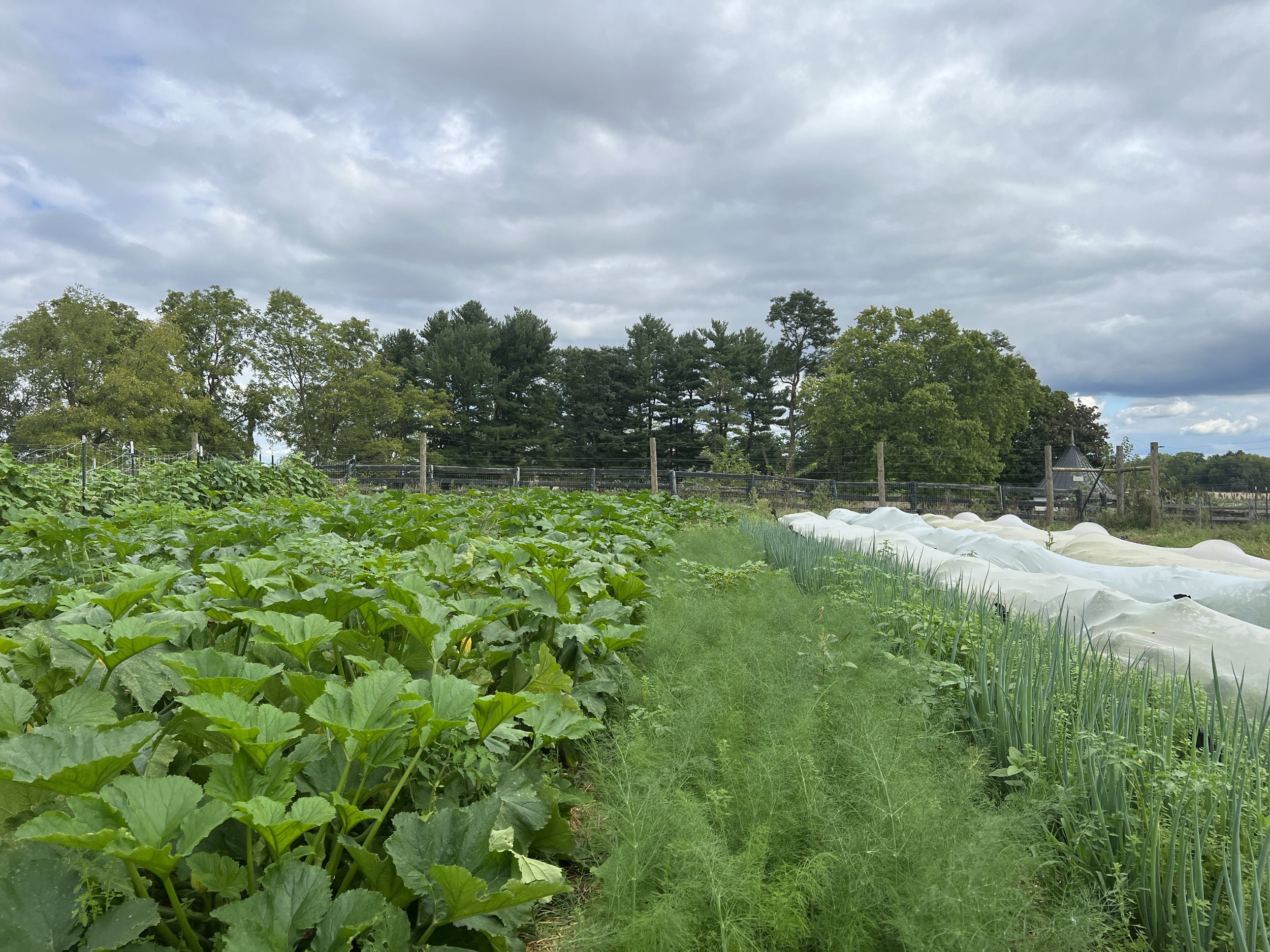Collards
OSGF
Plant Family: Brassicaceae
Latin Name: Brassica oleracea var. viridis
Varieties We Grow: Alabama Blue, Champion, Yellow Cabbage, Green Glaze, Vates, White Cabbage, Whaley’s favorite, Hen Peck, Utopian Ultracross
Storage: Store in an airtight container/bag in the refrigerator for up to 2 weeks.
Collards have been cultivated and consumed for thousands of years and are widely recognized as an important staple in southern cooking. Collards are fibrous and rich in essential vitamins and minerals including Vitamins K, A, manganese and are moderate sources of calcium and B vitamins. Collards are delicious braised, sauteed or boiled, added to soups and stews, and can even be eaten raw, like in a salad or sandwich.
Typically, the BCCF grows collards for production purposes, mainly for our CSA and food pantry donations. However, for the past few years, we have also started saving seed from certain heirloom varieties. Previously, we saved seed from Alabama Blue collards, and in 2023 we will be adding the varieties Yellow Cabbage, Green Glaze, Vates, White Cabbage, Whaley’s favorite, Hen Peck and Utopian Ultracross. You can read more about all of the amazing diversity in heirloom collard varieties via the Heirloom Collard Project. The Heirloom Collard Project is a collaboration between seed companies, seed stewards, gardeners, farmers and chefs working to preserve heirloom collard varieties and their culinary heritage.
Recipes
Chef Jason’s Stuffed Collards
Kickin’ Collard Greens: https://www.allrecipes.com/recipe/51803/kickin-collard-greens/
Mediterranean Stuffed Collard Greens: https://www.foodnetwork.com/recipes/trisha-yearwood/mediterranean-stuffed-collard-greens-5450126
Collard Greens Salad with Ginger and Spicy Seed Brittle: https://www.epicurious.com/recipes/food/views/collard-greens-salad-with-ginger-and-spicy-seed-brittle-56389371
